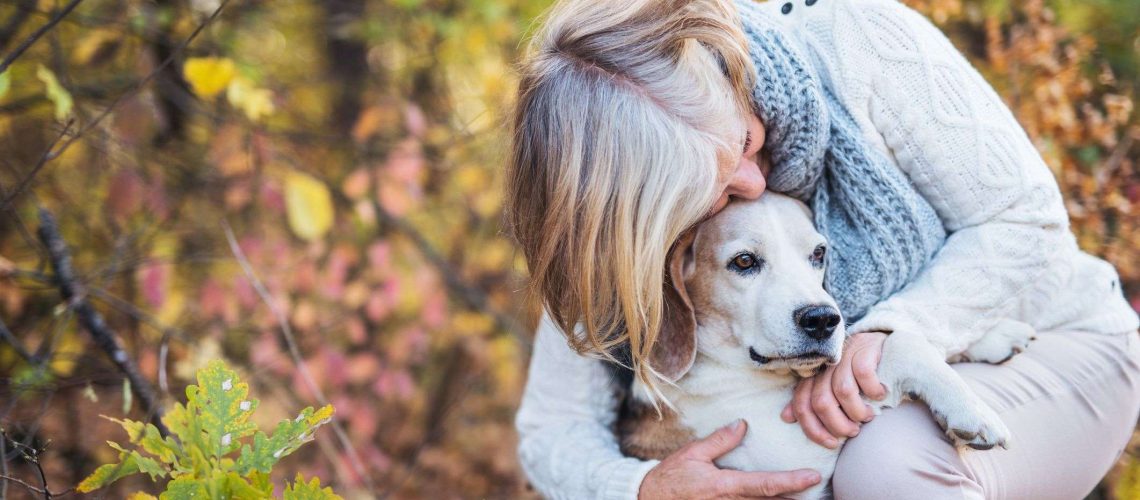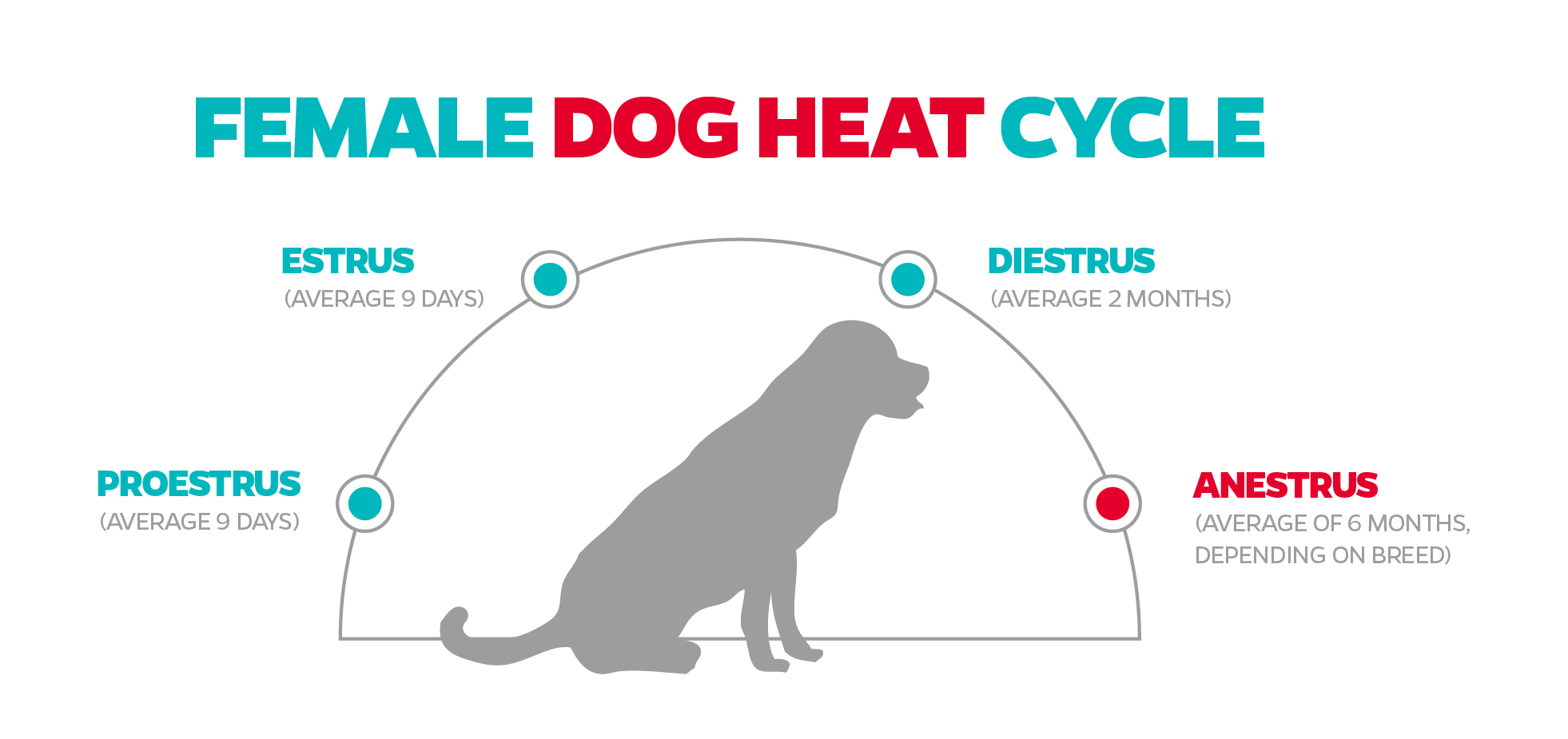Key Takeaways:
- Older female dogs do not experience menopause like humans do.
- Female dogs go through a reproductive stage called estrus, also known as heat.
- Estrus in older dogs may become irregular or less frequent.
- Spaying can eliminate the risk of reproductive health issues in older female dogs.
- Regular veterinary check-ups are important to monitor the overall health of older dogs.
Introduction:
Are you curious about the fascinating world of dogs and their unique biology? Have you ever wondered if older dogs go through a similar process to menopause, just like humans do? Exploring this topic can provide valuable insights into the aging process of our furry friends and help us understand their needs better. Whether you're a dog lover, an aspiring veterinarian, or simply have a thirst for knowledge, delving into the question of whether older dogs experience menopause holds numerous benefits. By uncovering the truth behind this intriguing subject, we can deepen our understanding of canine health and well-being. So let's embark on this journey together and unlock the secrets that lie within the lives of our beloved senior dogs. Get ready to be amazed by the wonders of nature!
What is Menopause and How Does it Affect Humans?
Understanding Menopause
Menopause is a natural biological process that occurs in women as they age. It marks the end of a woman's reproductive years, meaning she can no longer become pregnant. During menopause, the ovaries stop releasing eggs and hormone levels, such as estrogen and progesterone, decrease significantly.
Effects on the Body
The hormonal changes during menopause can lead to various physical and emotional symptoms. Some common physical symptoms include hot flashes, night sweats, irregular periods, vaginal dryness, and weight gain. Emotionally, women may experience mood swings, irritability, anxiety, and difficulty sleeping.
Do Female Dogs Experience a Similar Process to Menopause as They Age?
Differences in Reproductive Cycle
Unlike humans, dogs do not go through menopause in the same way. Instead of a complete cessation of reproductive ability like humans experience with menopause, female dogs have a different reproductive cycle. They go into heat or estrus approximately every six months throughout their lives until old age.
The Aging Process for Female Dogs
As female dogs age, their reproductive cycle may change. The intervals between heat cycles may become longer or irregular. Additionally, older female dogs may have fewer fertile periods or experience reduced fertility overall. While it is not exactly the same as menopause in humans, these changes are often referred to as "canine menopause" colloquially.
At What Age Do Female Dogs Typically Reach the Stage of Menopause?
Variations in Breeds
The age at which female dogs reach the stage of "menopause" can vary depending on factors such as breed and individual health. On average, smaller dog breeds tend to reach this stage earlier than larger breeds. Small to medium-sized dogs may experience changes in their reproductive cycle around 6-9 years of age, while larger breeds may continue to have regular cycles until 10-12 years of age.
Individual Differences
It's important to note that not all female dogs will go through a distinct menopausal stage. Some dogs may continue to have regular heat cycles throughout their lives, even into old age. Each dog is unique, and the timing and severity of reproductive changes can vary.
Physical and Behavioral Changes in Older Female Dogs
Physical Changes
As female dogs age and go through the reproductive changes associated with "menopause," there are several physical changes that may occur. These include a decrease in fertility, changes in mammary glands (such as enlargement or sagging), weight gain or loss, and potential urinary incontinence.
Behavioral Changes
Alongside physical changes, older female dogs may also exhibit behavioral changes. They might become less interested in mating or be less tolerant of male attention during heat cycles. Additionally, some female dogs may display increased irritability or restlessness during this stage. It's essential for owners to monitor these changes and provide appropriate care and support.
Can Spaying or Neutering Prevent Dogs from Going Through Menopause?
The Impact of Spaying
Spaying is the surgical removal of a female dog's reproductive organs, typically including the ovaries and uterus. When a dog is spayed before reaching sexual maturity, she will not experience heat cycles or become pregnant. However, if spaying occurs after sexual maturity, it does not prevent hormonal changes associated with aging entirely but can reduce certain health risks such as uterine infections and mammary tumors.
Neutering and Male Dogs
Neutering is the surgical removal of a male dog's testicles. It does not directly impact the reproductive changes in female dogs. However, spaying and neutering can be beneficial for population control and may reduce the risk of certain cancers in both male and female dogs.
How to Help Your Older Dog During This Stage of Life
Regular Veterinary Check-ups
Regular veterinary check-ups are crucial during your dog's older years. Your veterinarian can monitor any changes, provide appropriate vaccinations, and address any health concerns that may arise. They may also recommend dietary adjustments or supplements to support your dog's overall well-being.
Provide a Balanced Diet
A balanced diet is essential for maintaining your older dog's health. Feed them high-quality dog food formulated for senior dogs, which typically contain lower calories to prevent weight gain and higher levels of nutrients such as joint-supporting ingredients.
Exercise and Mental Stimulation
Regular exercise helps keep your older dog physically fit and mentally stimulated. Adjust the intensity and duration of exercise based on their individual needs. Engage in activities that challenge their mind, such as puzzle toys or obedience training, to keep them mentally sharp.
Health Risks Associated with Menopause in Older Dogs
Ovarian Tumors
As female dogs age, there is an increased risk of developing ovarian tumors. These tumors can be benign (non-cancerous) or malignant (cancerous). Regular veterinary check-ups can help detect any abnormalities early on.
Incontinence
Older female dogs may experience urinary incontinence due to weakened bladder muscles or hormonal changes. This can lead to involuntary urine leakage or accidents indoors. Consult with your veterinarian if you notice any signs of incontinence to explore treatment options.
Joint Issues
As dogs age, joint problems such as arthritis become more common. Hormonal changes associated with aging can exacerbate these issues. Providing joint supplements and maintaining a healthy weight can help alleviate discomfort and improve mobility.
Remember, every dog is unique, and it's essential to consult with your veterinarian for personalized advice and care tailored to your older dog's specific needs.
In conclusion, older dogs do not experience menopause like humans do. While they may go through changes in their reproductive system, they can still have puppies and remain fertile throughout their lives.
Do 14 year old dogs still go into heat?
Unlike humans, female dogs do not experience menopause. Instead, as they age, their heat cycles will become less frequent and their fertility will decrease. This means that older female dogs can still have heat cycles, but they will occur less often.
At what age do dogs stop menstruating?
Contrary to humans, dogs do not experience menopause. If a dog has not been sterilized, it will continue to have heat cycles and bleed once or twice a year throughout its entire life, unless it becomes pregnant or undergoes sterilization. As a female dog that has not been sterilized becomes older, its likelihood of developing a pyometra after a heat cycle also increases.
How long is a 12 year old dog in heat?
The heat cycle in female dogs typically lasts for 2-4 weeks. At the beginning of the cycle, some female dogs may not be receptive to male dogs, while others may remain receptive throughout the entire cycle. The length of the cycle can vary, but you will know it is over when the vulva returns to its normal size and there is no more bleeding or discharge.
Do dogs periods change as they get older?
As dogs get older, their heat cycles become longer but they never completely stop. If your dog has stopped going into heat, it could indicate health issues and you should consult with a veterinarian, according to Caroline Reay, the head of veterinary services at the UK national pet charity Blue Cross.
Should you spay a 14 year old dog?
But in the care of a skilled veterinarian, most older dogs (typically considered senior at around seven years old) can undergo spaying or neutering without any issues. It is important to evaluate the overall health of the senior dog, rather than solely relying on their age, when deciding whether or not to proceed with the surgery.
Is it safe to spay a 14 year old dog?
However, if your dog is in good health, there is no set age at which the procedure must be performed.

















